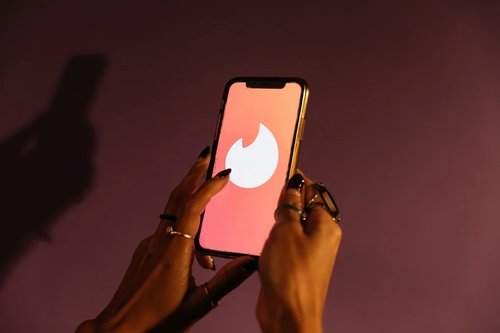Lazy Girl Job: When feminism means putting yourself first
Nov 23, 2023 - updated Jan 08, 2024
5 mins


Journaliste Modern Work
The Lazy Girl Job is the latest TikTok trend spreading across the world. Young women are taking to social media to brag about their cushy jobs that still earn them a good living. Behind the tongue-in-cheek name, this trend raises some interesting questions about young people, feminism, and work.
“Not everyone wants to climb the career ladder and pour all of their energy into a company. The ‘Lazy Girl Job’ offers a different perspective to help people avoid this inevitable fate.” For two years, TikToker Gabrielle Judge has racked up thousands of views with her posts on #LazyGirlJob. Hundreds have followed her lead, posting their satisfaction with their low-effort job. Marketing assistants, account managers, and client success managers: these young women post videos boasting the advantages of a job that involves generic tasks and very flexible work schedules. A growing community agrees that a less interesting, less taxing job can have a positive impact on your personal life. The invention of the Lazy Girl Job isn’t just a trend, it’s a testament to a strong desire to spend less time at work.
Disengaging as a feminist act
Slowing down, doing just what’s asked of you in your job description and no more—some might call the Lazy Girl Job trend quiet quitting … but not feminists. Behind each account contributing to the trend’s success are young people, and mainly women, says Mary Esposito. On her TikTok account MoneyWithMary, she offers financial education through a feminist lens. She celebrates the movement launched by Gabrielle Judge, which she, in turn, has promoted to her 110,000 subscribers: “I want women to know that it’s not weird to not want to work all the time. Stress shouldn’t be a sign of professional success.” According to a study by the agency Stimulus, women are more likely to be stressed at work than men. It showed that 28% of women suffer the harmful effects of intense anxiety, which explains why they’re looking to do things a different way.
We know that the pandemic resulted in an increased desire for flexible work, especially working from home and a better work-life balance. Florida-based recruitment manager Madelyn Machado has first-hand experience. “Many of my female clients who had demanding positions came to me asking for advice on finding jobs that still earned them a good living but had a less intense workload.” As a direct witness to the new trend, Machado started to promote the Lazy Girl Job on her Instagram account. For her, it was a way of showing people that women could earn a good salary without burning out. Positive reactions from her followers came flooding in: “They weren’t aware you could make a living without slaving away in an office for 40 hours a week!”
Though both feminine and feminist, the Lazy Girl Job movement isn’t just for women. Men are just as affected, says Gabrielle Judge. “Work has been woven into our society to the point of invasion. We tend to ask people to carry out a lot of pointless tasks that could be replaced with more days off or parental leave for example …”
Andy (name changed) has been a hotel receptionist for many years. In essence, it’s a Lazy Girl Job because it involves simple tasks and an accommodating schedule. However, when he was being treated badly by the management in that role, he became a fan of the #LazyGirlJob stories. On his humorous Instagram account, Communist Veggietales 2, he shares his opinions and politics, including the fact he’ll no longer sacrifice his well-being for an employer. “Now I’ve found a role in a different industry and a healthy environment where I have the time to read the news or do a little bit of personal research between tasks. Basically, I can spend some time focusing on my passions,” explains the young activist.
Gen Z, inner ecology, and Sex Education
According to Judge, the premise of a Lazy Girl Job is flexibility. “It’s easier to take care of kids or make a doctor’s appointment during the week when we control our own schedules and can work remotely,” explains the influencer in a video posted at the end of May on TikTok, seen by over 3.6 million people. Gen Z are the flag-bearers of the movement—young people born between 1995 and the end of the 2000s—who represent around 21% of the population.
Elisabeth Soulie, an anthropologist specializing in Gen Z, believes that the Lazy Girl Job concept is so popular among young women because they no longer see the world of work the same way as their elders. “There’s a need for inner ecology in this generation. They’ve seen their Gen Y brothers and sisters suffer in working conditions that have led them to burnout. The trend has gone viral because young people today expect their company to create the conditions for personal development.” A 2022 study by Kettle on Generation Z confirmed this analysis as 70% of people said that they’re more likely to choose a company that offers flexibility over one that doesn’t or where showing up in person is required.
The cultural content consumed by Gen Z—always a great way to get a handle on a generation—also supports the trend. According to The Guardian journalist, Daisy Jones, unlike the popular TV series 15 years ago or so, like Desperate Housewives or Sex and the City_—which revolve around professional success—the series young people watch today like _Euphoria or Sex Education focus on characters’ personal lives and barely acknowledge any professional ambitions. The British thirty-something believes that this generational change of heart reveals a retro-futuristic approach. “In a way, there’s something almost old-fashioned, even 1950s, about this approach to work: jobs are for making money and supporting the home, while the real drama of life goes on around them.” In addition, the content they consume is more elusive and less anchored in space and time, which Soulie says also has an influence: “This generation is historically unique because they were born into the digital world, which put an end to the idea of time to build, which has eternal value.”
Not as Lazy as you might think
In 2013, businesswoman Sheryl Sandberg, then No. 2 on Facebook, published Lean In, a piece where she called upon women to invest more in their professional lives, even sacrificing part of their personal lives to demonstrate their legitimacy in the patriarchal world of big business. This initiative, the total opposite of the Lazy Girl Job, was called “disastrous” by Michael Durwin, social media pioneer and strategy researcher. For him, the Lazy Girl Job movement is absolutely legitimate and desirable—except for its name, which he calls belittling. “Calling yourself a lazy girl is the exact opposite of feminism for me. These women have full-time jobs: there’s nothing lazy about wanting to respect your working hours for a better work-life balance.”
For Judge, the term Lazy Girl Job is a deliberate parody. The idea was to find a strong hashtag—something provocative—to gain traction. “What I’m promoting is considered lazy in comparison to the traditional vision of work, but it actually isn’t,” she says. Andy, the disenchanted ex-receptionist, is also the author of the Lazy Girl Job Wikipedia page and he thinks the name is genius marketing. “We’re carrying out an awareness campaign, so you need a name that makes people react to increase media coverage.”
Durwin is pessimistic about this as a strategy. He believes it risks increasing misogyny and the inequalities between men and women at work. The percentage of women in professional roles worldwide hovers at around 30%. “Even if it’s meant ironically, on social media people only retain the words, not the ideals behind them,” He explains, “Longer term, this could lead to fewer women holding roles of responsibility. After all, who wants to employ a lazy girl as a manager?”
Translated by Debbie Garrick
Photo: Welcome to the Jungle
Follow Welcome to the Jungle on Facebook, LinkedIn, and Instagram, and subscribe to our newsletter to get our latest articles every week!

More inspiration: Follow hiring trends

Hilke Schellmann exposes the flaws in AI that control your next job offer
AI tools promise fairness in hiring but often fail. Hilke Schellmann reveals how these flawed systems shape careers and why transparency is crucial.
Dec 23, 2024

How AI coaching can give young job hunters an edge
Considering a career coach but don't have the resources to pay for one? AI might be able to help.
Dec 12, 2024

Are internships replacing entry-level jobs?
If an entry-level role requires years of experience, young job hunters are already at a disadvantage …
Mar 06, 2024

Swipe right for success: Using dating apps to job hunt and network
Genius networking move or master manipulation?
Jan 30, 2024

Job search in 2024: A candid look at the US job market
Are layoffs coming to an end? Will you finally land a job in your dream industry? Let’s see what the market has in store …
Jan 22, 2024
The newsletter that does the job
Want to keep up with the latest articles? Twice a week you can receive stories, jobs, and tips in your inbox.

Looking for your next job?
Over 200,000 people have found a job with Welcome to the Jungle.
Explore jobs